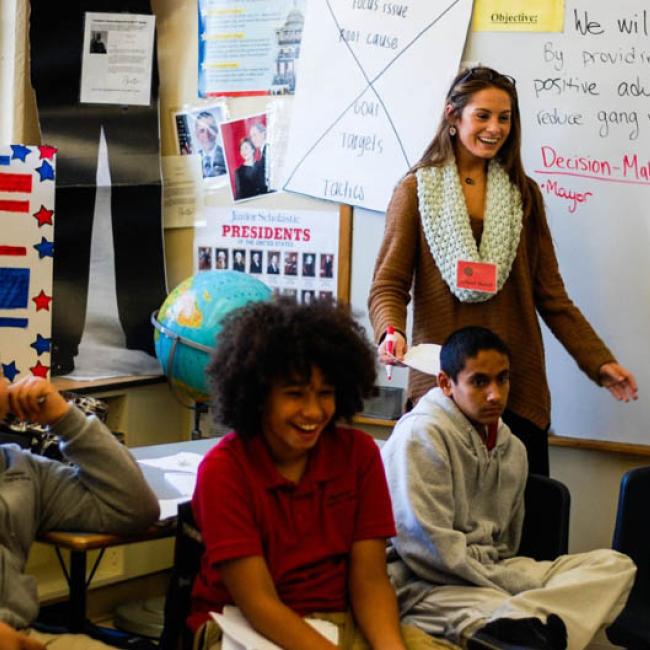Project Summary
The researchers are conducting a randomized controlled trial evaluating an “action civics" program (AC) that offers a school-based civic engagement intervention. The researchers are testing the causal effects of AC on changes in civic engagement and sense of community and subsequent health and wellbeing among middle and high school students.
Research Questions/Aims
- Does action civics participation affect youth civic engagement and sense of community among adolescent students (ages 11-18; grades 6-12)?
- Is there a causal relationship between action civics participation and mental, physical, social, and behavioral health and wellbeing among adolescents?
- Do the relations between action civics and health and wellbeing depend on (a) adolescents’ background characteristics, (b) experiences in action civics, and (c) experiences in society?
- Do psychological and social mechanisms (psychological empowerment, meaningful contribution, social connectedness, and civic readiness and skills) explain relations between action civics and health and wellbeing outcomes?
Actionability
- Inform decision-making around whether schools should implement action civics programs, by providing information about the resources needed and the potential benefits to the students, if any.
Outcomes

Methodology
The researchers are using a randomized controlled trial design, assigning treatment status at the school level (N=50) and reaching more than 1,500 students. Multi-level multivariable regression models are used to test the effects of AC participation on civic engagement and sense of community; to establish causal relations between AC participation and mental, physical, social and behavioral wellbeing; and to explore whether the relations between AC and health and wellbeing depend on moderators. Structural equation modeling is used to identify how psychological and social mechanisms explain relations between AC and health and wellbeing outcomes.

Wake Forest University Health Sciences
University of California, San Francisco
Monmouth University